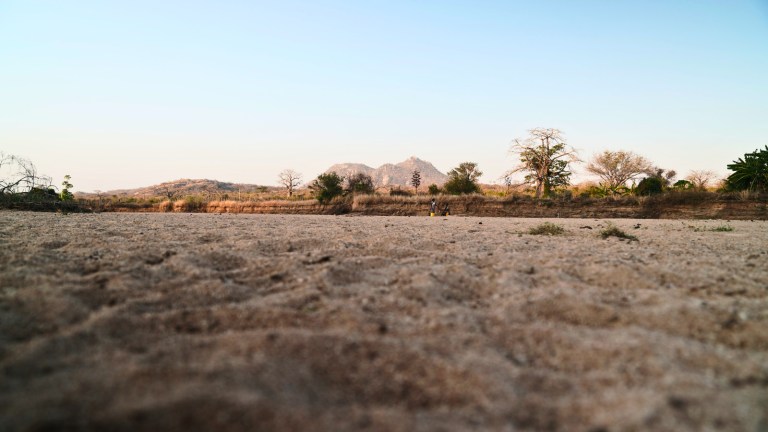The Deepening Crisis in Angola
by Jamie Malewska, Marketing Coordinator
Angola is an oil-rich country in sub-Saharan Africa. Despite being rich in oil, the government has a history of embezzling profits rather than investing them in public initiatives and improvement plans. As a result, there is a lack of social systems and major gaps in financial equality between the classes. While some live in luxury, thousands are starving. During our trips to Angola, this disparity is distressingly apparent. There are elite hotels with private beaches, skyscrapers, and luxury homes in the capital, while babies and toddlers in rural areas are dying from Severe Acute Malnutrition.
The Drought
On the most recent Global Hunger Index, Angola ranked 98th out of 116. Angola has a large rural population that relies on farming and livestock as their main food and income sources. Because of this, they are incredibly vulnerable to climate disasters like the severe drought that has lasted for 4 years now. Crops are drying up and livestock is running out of water and grazing pastures. This not only means that families are unable to harvest food from their farms but also that they are losing income, leaving them unable to buy food from the market. Malnutrition cases are skyrocketing in these areas. For babies and toddlers, malnutrition can have lifelong consequences like developmental delays and other health issues.

The War in Ukraine
On top of the drought, the war in Ukraine is deepening the crisis in Angola. The conflict is having worldwide consequences, and Angola and other nations that were already facing food crises are being hit the hardest. Combined, Russia and Ukraine supply almost a third of the world’s barley and wheat. The supply chain is still recovering from the impacts of Covid-19, but now international sanctions, rising gas prices, mobilization, and port blockades are exacerbating the issue and increasing global food prices. Because of this, food in Angola is becoming more and more out of reach for everyday citizens.
A Deadly Combination
The combination of the drought and the impacts of the war in Ukraine are creating a deepening crisis in Angola. Not only are malnutrition cases rising, but medical care is becoming increasingly necessary. Unfortunately for many, it is out of reach. For pregnant women and newborns in rural areas, healthcare was largely inaccessible even before these factors came into play. Local clinics are often ill-equipped and unprepared for birth-related complications and refer these cases to city hospitals. However, city hospitals can be hours away and those experiencing these kinds of health emergencies often die in transit. With the negative impacts that malnutrition has on maternal and newborn health, the lack of healthcare is increasing the risks of birth-related complications and even death. According to UNICEF poor nutrition in pregnancy can cause pre-eclampsia, hemorrhage, anemia, and other life-threatening complications for mothers and low birth weight, stillbirths, and developmental delays in their infants.

BirthAid and Malnutrition Clinics
Due to the deepening crisis in Angola for newborns and pregnant mothers, this year we have begun the process of starting BirthAid there. Education on safe-birthing practices and newborn care is a vital tool that can save countless lives. For example, in rural communities, knowing the danger signs to look for during pregnancy gives families the opportunity to seek healthcare before the situation becomes an emergency. BirthAid will also help prepare local communities and clinics for common birth-related complications. For example, if a baby is born not breathing if the parents know how to resuscitate their baby, they can save its life. Like CPR, BirthAid can help empower communities and save the lives of babies and mothers.
Our malnutrition program has also been expanding in Angola. Over the years we have learned that staying the entire 4-6 weeks at the malnutrition clinic can be difficult for moms because they run out of food. Now, we feed the moms while their babies and toddlers are receiving treatment. Because of this, more little ones can fully recover before leaving the clinic. We also recently began a community-screening program. This program goes into rural communities and screens babies and toddlers for malnutrition. Catching moderate cases of malnutrition before it becomes severe can prevent little ones from having developmental delays and other long-term health consequences. All the while our 7 malnutrition clinics are still treating babies and toddlers with severe acute malnutrition every day, bringing them back from the brink of starvation.
From Famine to Hope
We are so grateful to be expanding our programs in Angola. Every time we visit this wonderful country, we are heartbroken to see the suffering of little ones who are starving or hear the stories of those who did not survive birth, but we are also encouraged to see how many lives are being saved every day. It will always be our goal to continue expanding and seeking out opportunities to meet the urgent needs of babies and toddlers where help is least available.



